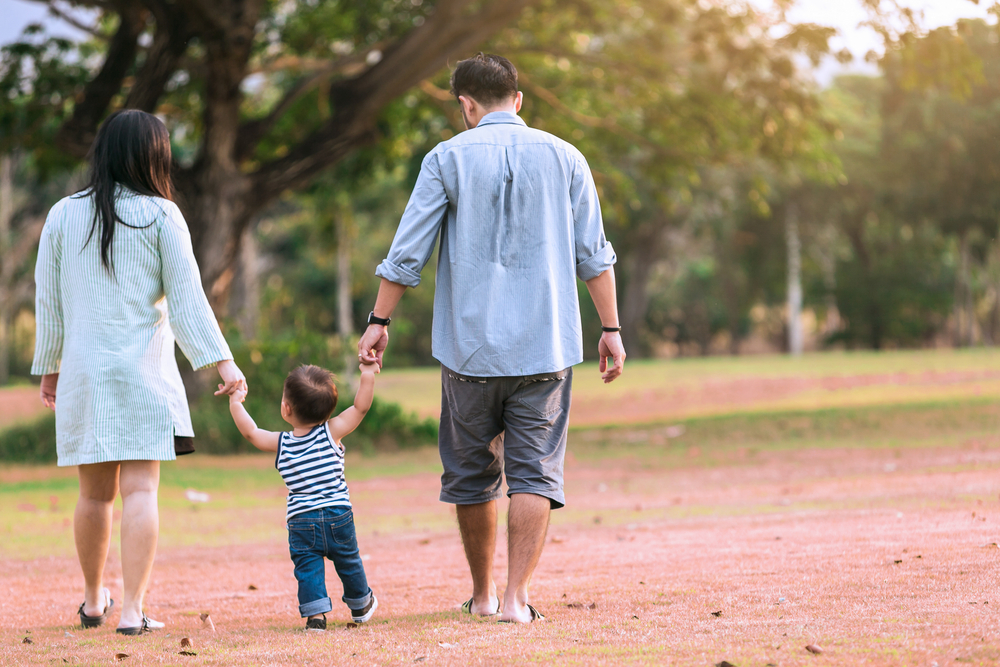The ‘We-team’ is a mindful practice for couples to create trust beyond divorce, beyond the conflicts of ‘my story’ against ‘your story.’ The We-team is a safe place for ex-partners and their children. The experience of ‘We’ respects ‘me’ and ‘you.’ Marriages that fail to create We-team experiences will suffer from chronic conflict. If they divorce in anger, the children will grow up in an emotional danger zone between them.
In my 30 years of helping families navigate toxic stress, I find that most parents can put their children’s well-being before their own. A willingness to create a post-divorce We-team as co-parents are critical to preventing toxic stress that derails child development. After divorce, cultivating a co-parenting ‘We-team’ experience is imperative.
Co-parent We-teams remain calm and connected. They practice staying in the co-parent conversation and mindfully navigate away from toxic marital stress triggers. They do not blame one another. Their focus is on their children. They respect and accept that their parenting styles are different. This plays a critical role in helping families retain good parenting, no matter what their personal stresses might be.
Individuals in a couple live in several narratives simultaneously: partner, parent, individual, adult child, etc. Divorce can rupture all these attachments and do serious damage to the developing children in the family system. A resentful spouse can become an angry, distracted parent. A self-pitying divorcee can withdraw from parenting. Contempt between couples contaminates co-parenting in the eyes of children triggering toxic stress.
With the divorce rate soaring, the toll on children is profound and life-altering. We know that divorce, itself, does not have long term detriments on child development if it is managed by calm parents. But many divorcing couples live in the chronic, toxic stress of resentment and self-pity long after the divorce is settled. It is the toxic stress and the loss of parenting that does damage to the developing brain/mind of children.
We-team benefits
In healthy couples and families, ‘we’ experiences create trust, inspire creativity, foster strong identities and empower emotional resilience to the adversities of life. The brain’s stress regulatory system needs consistency in early life to develop a secure attachment to oneself and others. Every child wants to have we-time with each parent. Positive bonds grow when parents emotionally attune with their child. Attuned parents bring attention to their children, show empathy for their struggles, and validate their efforts to master their developmental hurdles.
We-teams allow emotional communication to flow back and forth in families. A deep sense of intimacy and trust emerges, and it can last a lifetime. A secure We-team develops the skills to process the natural negative emotions triggered by disappointments in expectations. Disconnecting emotionally is normal. Reconnecting requires skill.
Making time for regular We-team meetings to process negative emotions is critical to a resilient co-parent bond. Divorced couples often do not have these skills. To protect the children from post-divorce stress, couples need to practice We-team mindfulness for co-parenting.
We-team meetings allow each partner to express their feelings of fear, anger, and confusion without blaming anyone. Owning one’s feelings and sharing them cultivates empathy and trust between divorced parents. In a turn-taking conversation, without interruption, co-parents can jointly focus on diffusing stress to protect their children. The conversation also allows for requests and commitments to be heard. In an early divorce, it is helpful to structure regular meetings to prevent acute stress from becoming long-lasting and toxic.
I always remind young couples to cultivate true friendship, accepting each other as unique and different. When disappointments occur, blaming is commonly triggered. Practicing acceptance of these painful disconnections and sharing the feelings without blame recovers the brain/mind link and activates empathy and gratitude in the partnership. We-team experience and memories are the foundation of true friendship. Long-lasting marital satisfaction is reflected in couples that describe each other as “my best friend.” Friendship, not romance, is the key to longevity, happiness, and healthy children.
The We-Team
A mindful practice to help you navigate co-parenting after divorce

